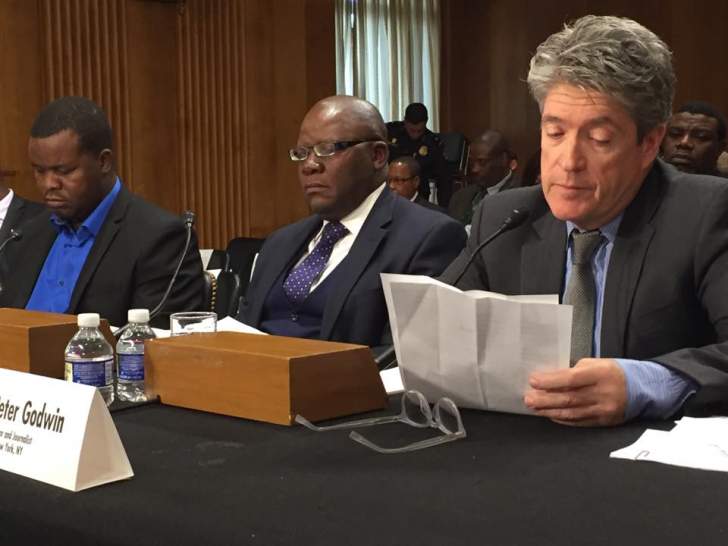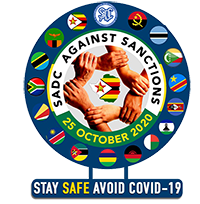Dr Panganai Kahuni
In August 2018 United States President Donald Trump signed into effect a new sanctions regime against our country, the Zimbabwe Democracy and Economic Recovery Amendment Act.
The text of the new Zidera reads like something written by Zimbabwe’s opposition politicians, who have been the only ones here to have actually made a living from the sanctions that have been with us for the better part of two decades.
According to the Cambridge Advanced Leaner’s Dictionary, sanctions are “official orders such as the stopping of trade … taken against a country in order to make it obey international law”.
The dictionary adds that sanctions are “strong action taken in order to make people obey a law or rule, or a punishment given when they disobey”.
In short, sanctions are punitive measures taken against offenders who would have disobeyed a law. When sanctions were imposed on Zimbabwe at the instigation of the opposition MDC in its various guises, there was no conceivable offence Zimbabwe had committed.
The imposition of sanctions on a country become legal when they are endorsed by the United Nations. If sanctions are unilaterally imposed on a country, they are regarded as illegal.
Sanctions imposed by the West on Zimbabwe after its landmark land reform are illegal since they were not imposed by the UN.
The other issue is to lay bare Western hypocrisy in regards to the observance of the rule of law. The imposition of economic sanctions on Zimbabwe is an example of the rule of law being severely adulterated by a West that claims to be the paragon of democracy.
Our economy has been severely battered over the past 18 years due to illegally imposed economic sanctions.
This period also saw Zimbabwe experiencing deliberate media propaganda targeted at psyching Zimbabweans into believing all its problems are the result of bad governance and neglecting the rule of law.
This is something the new administration has sought to combat through concerted efforts and vigorous re-engagement campaigns guided by the mantra “Zimbabwe is Open for Business”.
Sadly, the biggest losers whenever sanctions are imposed are ordinary people who simply want to lead decent lives.
Those who support the sanctions on Zimbabwe are either victims of the propaganda campaigns or are disingenuous actors who stand to advance their own political careers and make money for themselves while the rest of the nation suffers.
This is the reason why we find supposedly well-educated people like Jonathan Moyo, Welshman Ncube, Ibbo Mandaza, and others in academia trying their best to convince the nation and the world that the suffering of ordinary Zimbabweans via sanctions is the best way forward.
Theirs is to get money and nothing else. They will attack anyone and everyone for the sake of money.
Imagine Welshman Ncube, himself a beneficiary of land reforms, rubbishing the land reform policy that seeks to address inequality?
Where do these negative forces of Zimbabwe land reform stand today when the World Bank endorses the South African land reform without compensation?
Where do these negative forces that supported the illegal imposition of sanctions on Zimbabwe stand when Britain apologises for its mistakes by way of endorsing the current Zimbabwe Government, when the commonwealth is ready to admit Zimbabwe as a club member?
Where do these followers who do not apply critical thinking before they become riotous stand when Nelson Chamisa disowns them and Tendai Biti runs away into self-exile?
Imagine Jonathan Moyo, a self-exiled political despot, rushing to tweet that Biti will be given asylum according to international law, but then he is denied?
Why should we listen to these people when they say sanctions are good for Zimbabwe when they evidently do not even know what is good for themselves?
These illegal sanctions are a measure aimed at turning our population against its own national interests.
We must all be clear that the period 2000 to the present when the various MDCs championed sanctions on Zimbabwe is also the same period we saw the economy contracting and many people losing their jobs as companies shut down.
The only people who have benefitted from the sanctions are opposition politicians and their fellow activists in civil society who have been living off millions in donor funds while the rest of the country experiences hardhsips.
This is why every right thinking Zimbabweans must shun the violence and sanctions fathered by the opposition, and instead join hands with progressive citizens so that together we can build a middle-income economy by 2030.





